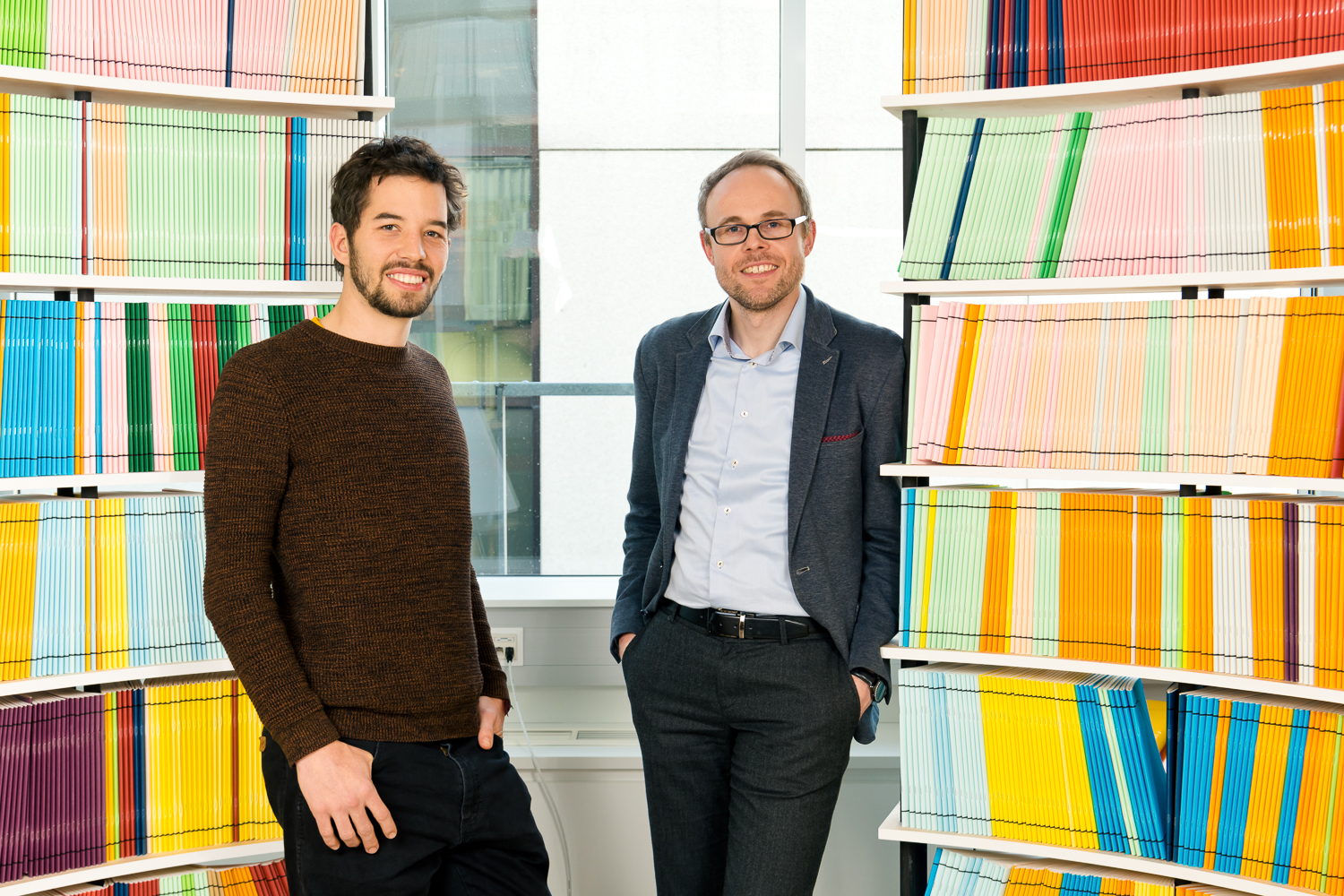The immune cells never rest and are ready for action when needed, PLUS study reveals

When pathogens invade the body, the immune system must respond immediately to prevent or contain infection. But how do our immune cells stay ready when there is no attacker in sight? Scientists in Vienna and Salzburg, including PLUS Assistant Professor Nikolaus Fortelny, have come up with a fascinating explanation: they are stimulated by healthy tissue. This means that they never rest and are immediately ready for action when needed.
How the immune system works
Communication is crucial in immune defence: when a virus infects a cell, for example, the cell releases signalling molecules. This alerts defence cells, and our entire immune system is activated within a very short time. Immune cells process these signals in particular via the JAK-STAT signalling pathway - named after Janus, the two-headed Roman god of the beginning and the end. This signalling pathway acts like a direct line from signal recognition to the nucleus of the defence cells, where it activates a series of genes and sets the cells into attack mode. But even if there is no present danger, our defence cells must always be vigilant. At the same time, they must not cause any damage through unnecessary activity, as is the case with autoimmune diseases.
How our defence cells maintain this balance was poorly understood so far. But a team of Viennese research groups including Professor Nikolaus Fortelny from the Department of Biosciences and Medical Biology at PLUS has now presented an explanation:
The same JAK-STAT signalling pathway that activates the defence cells during an infection also keeps them on standby. The defence cells therefore only need to increase the intensity of the signalling pathway in the event of an infection; this is much faster than switching a signalling pathway on again completely”, explains Christoph Bock, Principal Investigator at CeMM and Professor at MedUni Vienna.
Taking into consideration that the genes of the JAK-STAT signalling pathway are sometimes pathologically altered in people with immune disorders and cancer, this research therefore also provides potential approaches for new therapies.
